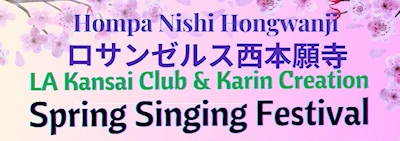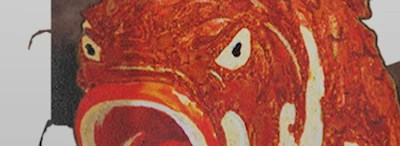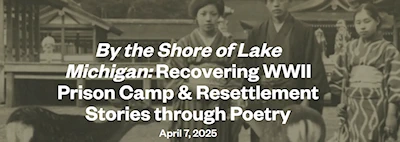2025 Thanksgiving Day - ThursdayNEW
Thanksgiving is always celebrated on the 4th Thursday in November.
Japan: Thanksgiving Day is celebrated in Japan. It is called Kinrō Kansha no Hi, which means Labor Thanksgiving Day. It is a national holiday celebrated on November 23rd of each year, unless that day falls on a Sunday, in which case the holiday is moved to Monday.
Japanese Thanksgiving has its roots in the Niiname-sai, an ancient Japanese harvest festival. After World War II, the US-led occupation authorities sought to abolish Japanese national holidays rooted in State Shinto mythology, including Niiname-sai. In response, the Japanese government adopted a new national holiday law in 1948 that renamed the holiday to Labor Thanksgiving Day while keeping the date the same.
Today, Labor Thanksgiving Day is a day to honor workers and celebrate their contributions to society. Many schools and businesses are closed on this day, and people often spend time with their families and friends. Some traditional Japanese Thanksgiving activities include:
• Giving gifts or cards to workers, such as police officers, firefighters, and hospital staff.
• Visiting temples or shrines to give thanks for the past year's harvest.
• Eating special Thanksgiving foods, such as turkey, rice, and sweet potatoes.
Although turkey is not a traditional Japanese food, it has become increasingly popular in Japan in recent years, especially on Labor Thanksgiving Day. Many restaurants offer special Thanksgiving meals on this day, and some families even roast turkeys at home.
In recent years, there has also been a growing trend of people celebrating Thanksgiving Day in Japan in a more Westernized way. This includes hosting Thanksgiving potlucks, watching football games, and eating traditional American Thanksgiving foods such as pumpkin pie.
Overall, Labor Thanksgiving Day is a relatively new holiday in Japan, but it has quickly become a popular day to celebrate workers and give thanks for the past year's blessings.
History
Thanksgiving in North America had originated from a mix of European and Native traditions. Typically in Europe, festivals were held before and after the harvest cycles to give thanks for a good harvest, and to rejoice together after much hard work with the rest of the community. At the time, Native Americans had also celebrated the end of a harvest season. When Europeans first arrived to the Americas, they brought with them their own harvest festival traditions from Europe, celebrating their safe voyage, peace and good harvest. Though the origins of the holiday in both Canada and the United States are similar, Americans do not typically celebrate the contributions made in Newfoundland, while Canadians do not celebrate the contributions made in Plymouth, Massachusetts.
In the United States
In the United States, the modern Thanksgiving holiday tradition traces its origins to a 1621 celebration at Plymouth in present-day Massachusetts. There is also evidence for an earlier harvest celebration on the continent by Spanish explorers in Florida during 1565, as well as thanksgiving feasts in the Virginia Colony. The initial thanksgiving observance at Virginia in 1619 was prompted by the colonists' leaders on the anniversary of the settlement.[7] The 1621 Plymouth feast and thanksgiving was prompted by a good harvest. In later years, the tradition was continued by civil leaders such as Governor Bradford who planned a thanksgiving celebration and fast in 1623. While initially, the Plymouth colony did not have enough food to feed half of the 102 colonists, the Wampanoag Native Americans helped the Pilgrims by providing seeds and teaching them to fish. The practice of holding an annual harvest festival like this did not become a regular affair in New England until the late 1660s.
According to historian Jeremy Bangs, director of the Leiden American Pilgrim Museum, the Pilgrims may have been influenced by watching the annual services of Thanksgiving for the relief of the siege of Leiden in 1574, while they were staying in Leiden.
Contending Origins
The claim of where the first Thanksgiving was held in the United States, and even the Americas has often been a subject of debate. Author and teacher Robyn Gioia and Michael Gannon, of the University of Florida, have argued that the earliest attested "Thanksgiving" celebration in what is now the United States was celebrated by the Spanish on September 8, 1565, in what is now Saint Augustine, Florida.
Similarly, many historians point out that the first thanksgiving celebration in the United States was held in Virginia, and not in Plymouth. Thanksgiving services were routine in what was to become the Commonwealth of Virginia as early as 1607. A day of Thanksgiving was codified in the founding charter of Berkeley Hundred in Charles City County, Virginia in 1619.
Fixing the date of the holiday
The reason for the earlier Thanksgiving celebrations in Canada has often been attributed to the earlier onset of winter in the north, thus ending the harvest season earlier.[17] Thanksgiving in Canada did not have a fixed date until the late 19th century. Prior to Canadian confederation, many of the individual colonial governors of the Canadian provinces had declared their own days of Thanksgiving. The first official Canadian Thanksgiving occurred on April 15, 1872 when the nation was celebrating the Prince of Wales' recovery from a serious illness.[17] By the end of the 19th Century, Thanksgiving Day was normally celebrated on November 6. However, when World War I ended, the Armistice Day holiday were usually held during the same week. To prevent the two holidays from clashing with one another, in 1957 the Canadian Parliament proclaimed Thanksgiving to be observed on its present date on the second Monday of October.[5] Since 1971, when the American Uniform Monday Holiday Act took effect, the American observance of Columbus Day has coincided with the Canadian observance of Thanksgiving.
Thanksgiving in the United States, much like in Canada, was observed on various dates throughout history. The dates of Thanksgiving in the era of the Founding Fathers until the time of Lincoln had been decided by each state on various dates. The first Thanksgiving celebrated on the same date by all states was in 1863 by presidential proclamation. The final Thursday in November had become the customary date of Thanksgiving in most U.S. states by the beginning of the 20th century. And so, in an effort by President Abraham Lincoln (influenced by the campaigning of author Sarah Josepha Hale who wrote letters to politicans for around 40 years trying to make it an official holiday), to foster a sense of American unity between the Northern and Southern states, proclaimed the date to be the final Thursday in November.
It was not until December 26, 1941, that the unified date changed to the fourth Thursday (and not always final) in November -this time by federal legislation. President Franklin D. Roosevelt, after two years earlier offering his own proclamation to move the date earlier, with the reason of giving the country an economic boost, agreed to sign a bill into law with Congress, making Thanksgiving a national holiday on the fourth (not final) Thursday in November.
Source: http://en.wikipedia.org/wiki/Thanksgiving
Disclaimer: Please double check all information provided on our platform with the official website for complete accuracy and up-to-date details.
Thursday, 27 November, 2025
Event Contact
Japan Thanksgiving Day - Thursday, NovemberEvent Organizer Website
Visit Organizer Website
Get More Details From the Event Organizer
Event Location Website
Visit Location Website
For More Location Details
Event Information Can Change
Always verify event information for possible changes or mistakes.Contact Us for Issues
















